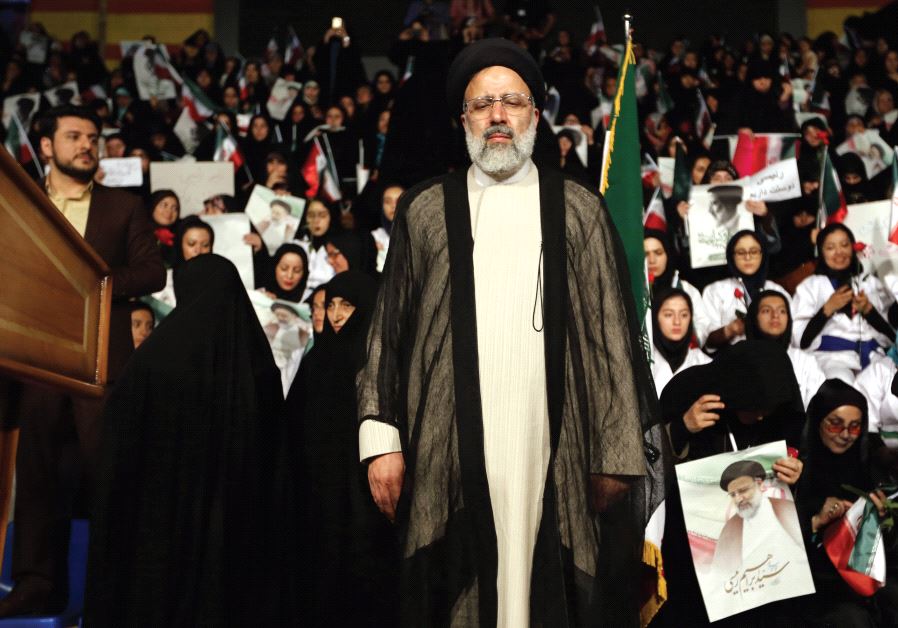Israel hopes Iran's next president is the lesser of two evils
Pragmatist Rouhani is running for reelection against hardliner Ebrahim Raisi in a vote that will have wide-ranging implications for Israel.
 Iranian presidential candidate Ebrahim Raisi attends a campaign rally in Tehran, April 29(photo credit: ATTA KENARE / AFP)Updated:
Iranian presidential candidate Ebrahim Raisi attends a campaign rally in Tehran, April 29(photo credit: ATTA KENARE / AFP)Updated: